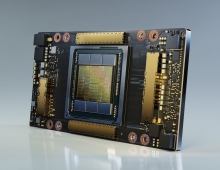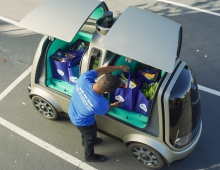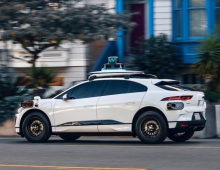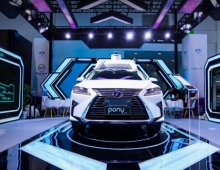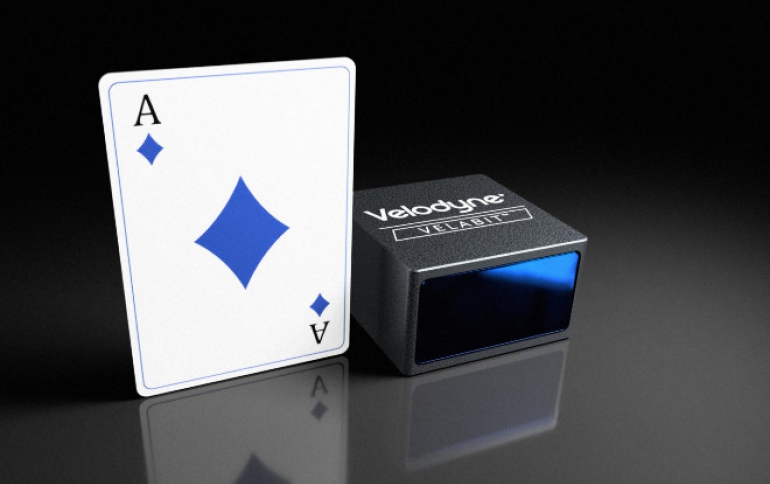
Velodyne Debuts $100 Velabit Auto Safety Sensor
Lidar pioneer Velodyne debuted a $100 solid-state laser sensor at CES today, the Velabit, that the company says it is ideal for auto safety-oriented ADAS, as well as drones and industrial robots.
“We are coming to a conclusion that the addition of the lidar into the vehicle, maybe two Velabits, will first and foremost enhance the reliability and availability of your basic ADAS functions like automatic emergency braking and lane-keep assist,” said CEO Anand Gopalan, who was promoted to that position from chief technology officer. “Even systems available today, using cameras and radar, become more reliable with lidar.”
Early Velodyne models sold for more than $60,000, though its current Puck line of multi-laser beam sensors sell for a fraction of that price. Nevertheless, the company has never had a product as inexpensive as the Velabit.
Lidar devices habe the ability to create 3D, 360-degree point cloud maps around a vehicle. Lidars operate in all lighting conditions and they have been a key enabling technology in the early days of the self-driving car revolution. However, high costs per unit has limited their sales.
The new Velabit sensor is smaller than a deck of playing cards, allowing easy integration into a vehicle’s chassis, and can track objects up to 100 meters away. The company says it helps improve a vehicle’s perception coverage for Blind-Spot Monitoring, Cross Traffic Detection, Automatic Emergency Braking and Pedestrian and Bicyclist Safety.
Here are the Velabit’s leading features:
- Integrated processing in a compact size of 2.4” x 2.4” x 1.38” to be easily embedded in a wide range of solutions.
- Range up to 100 meters.
- 60-degree horizontal FoV x 10-degree vertical FoV.
- Highly configurable to support a range of applications.
- Proven, Class 1 eye-safe 903 nanometer technology.
- Bottom connector with cable length options.
- Multiple manufacturing sources scheduled to be available for qualified production projects.
Initial production of starts in June.

